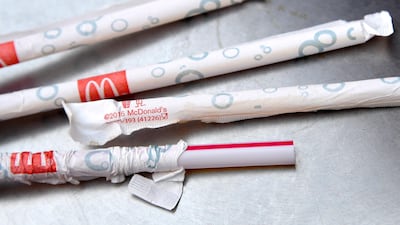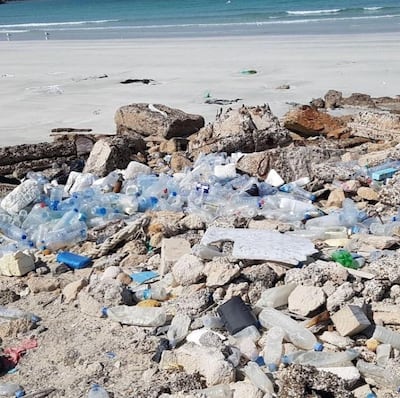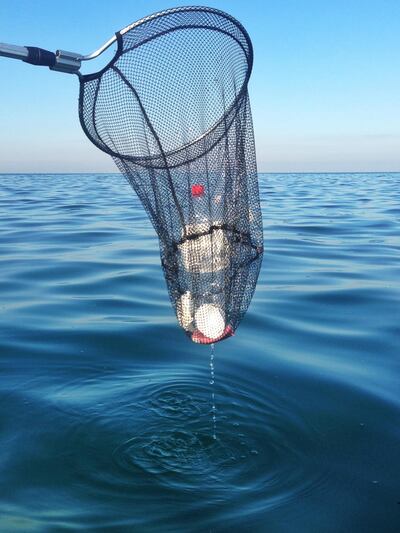When we look out of an aircraft window at 38,000 feet and see the sea – an endless body of water that seems utterly empty apart from the occasional shipping vessel appearing as a tiny dot in the vastness – it’s easy to assume that our actions as humans couldn’t possibly impact its condition, at least on a global scale. Its sheer scale, in both area and volume, is almost incomprehensible. Its ability to clean itself up even after major oil spills and other ecological disasters is remarkable – an ever-churning, recycling and mysterious place that still holds incalculable secrets.
But it was the disappearance of an aircraft that began to shine a horrifying spotlight onto the reality of conditions in the wild, untamable seas of our planet. When Malaysian Airlines Flight 370 vanished from radar screens four years ago, the extensive search for its fuselage was something that had the world gripped. Much of the southern Indian Ocean had, until then, not been subject to observation or scrutiny, but that changed when satellites were trained on it, in the hope of spotting some wreckage from the plane. We thought we might get some answers.
And indeed, it turned out that there was much to see once we took a closer look. While the Boeing 777 remained frustratingly invisible, false sightings became commonplace and what were initially thought to be aircraft parts bobbing on the surface turned out to be anything but. “It was all trash,” says Laura Parker in a recent National Geographic editorial. “Pieces of broken shipping containers abandoned fishing gear and, of course, plastic shopping bags.”
Environmental scientists and campaigners seized on this golden opportunity to push public awareness and here we are, just a short time later, trying to comprehend how we’ve let our oceans get so full of plastic rubbish that they’re rapidly becoming little more than Technicolor cemeteries, the precious life forms within, so essential to the balance of nature, being wiped out en mass because of the refuse we’ve been discarding over the past six decades.
Last week we considered the terrible havoc being wrought by single-use plastic shopping bags but there’s a concerted effort being made in some parts of the world to get rid of something that, on the face of it, is far less dangerous: the plastic drinking straw. Surely, cry the McFlurry obsessives, these inoffensive tubes, which weigh less than half a gram each, can’t be doing significant harm to our oceans?
Three years ago the world was shocked by an eight-minute video clip featuring two researchers extracting an 8cm plastic straw from the bleeding nostril of an endangered Olive Ridley sea turtle. Found in waters off the coast of Costa Rica, the male amphibian’s excruciating plight has been viewed on YouTube more than 11 million times and it sent palpable shock around the world. For too long we’d used these things without giving a thought to why, or what ends up happening to them after we’ve thrown them in the bin. And the answer was appalling.
Why do drinking straws even exist? That’s likely a question few of us have pondered on but, unless we’re an infant, elderly or have certain physical disabilities, there are few times in life when we actually need to consume liquids through a small plastic tube. If you shudder at the thought of drinking anything without one for sanitary reasons, stop for a moment and think about restaurant cutlery and glasses. Most of us don't have a problem with them, despite the fact that they've previously been up close and personal with thousands of other people.
Global figures don’t exist but environmental groups often trot out unconfirmed estimates that Americans use and discard half a billion plastic straws every single day. The World Wildlife Fund puts the United Kingdom’s annual tally at 42 billion each year, which equates to 15,700 tonnes, while the European Union as a whole throws away 82,000 tonnes of plastic straws every 12 months. And a huge proportion of these end up in our seas, where they end up injuring marine life, changing physical form, becoming toxic microplastics ingested by fish, birds and other vulnerable creatures, often killing them.
Straws are made from polypropylene – a plastic that’s recyclable, so why has this become a problem? Most plastic straws are too slender and lightweight for mechanical recycling sorters, and they tend to drop through sorting screens, getting mixed with other materials. Because they are too small to separate, they’re left untreated, ending up either poisoning landfill or in the sea.
It’s a subject very close to the heart of Natalie Banks, who is the manager of Azraq, a marine conservation NGO in Dubai that’s been working tirelessly in recent months to draw the UAE’s attention to the plague of single-use plastics, especially drinking straws. An Australian expat, Banks relocated here when her husband had a work transfer and she says that, like the majority of people in her home country, she has always had a real affinity with the sea.
“Look at a map of Australia,” she says, “and see where most of the cities and densely populated areas are – all along the coast. We’re never far from the ocean and we know we have to respect it, for we all depend on it in one way or another. When I lived there I got into scuba diving and was involved with [conservation organisation] Sea Shepherd, so when we moved to the UAE that continued, ending up with me being the manager at Azraq.”
In February this year, Azraq joined forces with Freedom Pizza for a campaign called #StopSucking to encourage food outlets in the UAE to ditch plastic straws, and there has been considerable success. “There’s a new hotel [Jumeirah at Saadiyat Island] opening this year in Abu Dhabi,” Banks enthuses, “and it will be run as a single-use plastic free zone. No plastic water bottles, no straws. And Jumeirah Restaurant Group has all sorts of plastics on the radar, not just straws. They’re reducing water bottle usage by installing filters and that’s because consumers are starting to vote with their feet over this sort of thing.”
Joining the movement and pledging to #StopSucking is Gates Hospitality in Dubai, which operates Bistro Des Arts, Folly by Nick & Scott, Publique, Reform Social & Grill, The Black Lion, Ultra Brasserie and Via Veneto. Basta! has ditched plastic straws in favour of ones made from pasta, while Coya has announced a ban on plastic straws at every one of its venues around the world. Abu Dhabi's The Club has said adios to plastic glasses and cutlery, as well as straws, and The Noodle House is now only offering paper straws on request, and has removed plastic cutlery from all its home deliveries. Lime Tree Cafe, Common Grounds, Nathalie's, Urth, Pitfire Pizzas, Pierchic and Flow have all ditched the straw, too - there's no doubt we are witnessing a huge shift and that, soon, using a straw will be about as socially acceptable as lighting a cigarette in a hospital waiting room.
Banks confirms what many of us might have suspected; that social media has been a massive driver in influencing behaviour and attitudes, with hard hitting videos doing the rounds on all platforms, like the recent one of a scuba diver in Bali, swimming underwater through a huge slick of plastic debris in what should be crystal clear conditions. “I know that Freedom Pizza’s social media lit up when the stop sucking campaign was launched, for instance. And it’s this persuasive form of peer pressure that people genuinely respond to, without being lectured to. The [visual] evidence is all there for people to make up their own minds about.”
_______________
Read more:
Five initiatives in the UAE to stop plastic pollution
Single-use plastics to be banned under new EU proposals
Marine conservation group aims to take Sheikh Zayed's legacy forward
How to live a plastic-free life in the UAE
_______________
Speaking of visual evidence, Azraq screened the short documentary feature film, Straws, to a sell-out audience in June in Dubai, and the response was so positive that Banks arranged another showing at the Park Hyatt hotel in Abu Dhabi. “After the [Dubai] screening we had a panel discussion and it was obvious from the audience interaction that there’s a real passion for getting the sea cleaned up here,” she says. “And that’s not surprising, when you stop to consider that we are a predominantly coastal country, similar in that respect to Australia.”
Banks cautions, however, that some plastic alternatives are not necessarily the answer. So-called biodegradable plastics, known as PLA (or polylactic acid), are made from renewable sources such as corn starch or sugar cane. “While their production is more environmentally friendly than regular plastic made from petroleum,” she points out, “there is a real issue in that products made from biodegradable plastic cannot break down without industrial composting facilities, none of which are suited to PLA in the UAE. Therefore, good intentioned people are swapping from regular plastic to PLA thinking that the product will break down in six months, when in fact it will sit in landfill alongside regular plastic without the necessary heat, oxygen and organic substrates - effectively swapping one problem for another.”
Some companies are doing a roaring trade on the back of campaigns such as #StopSucking, disingenuously claiming their PLA products are not plastic. “I’m not sure how they’re able to get away with that because they’re labelled as ‘other plastic’,” she sighs. “And it leaves a bitter taste in my mouth because a PLA straw is just as likely to be found up a turtle’s nose or littering our beaches because we don’t have the recycling infrastructure to deal with the product. In order to make a long term difference, the main solution truly lies in improving the recycling industry on a global scale.”
In the meantime, though, we can do our bit by reducing their use in the first place - if demand drops for anything, so does supply, and the world already has more of this stuff than it knows what to do with.



